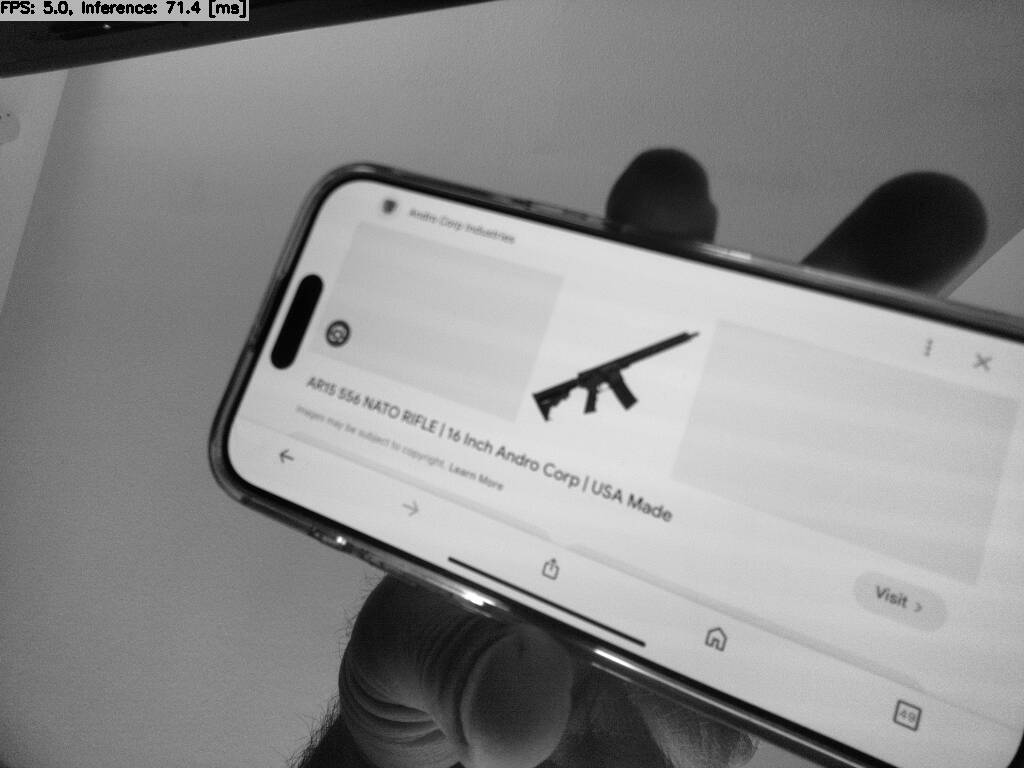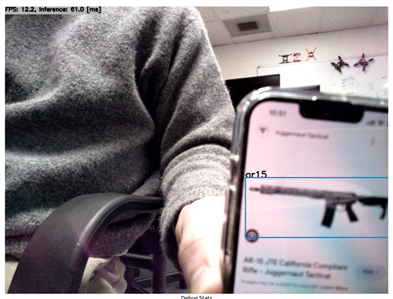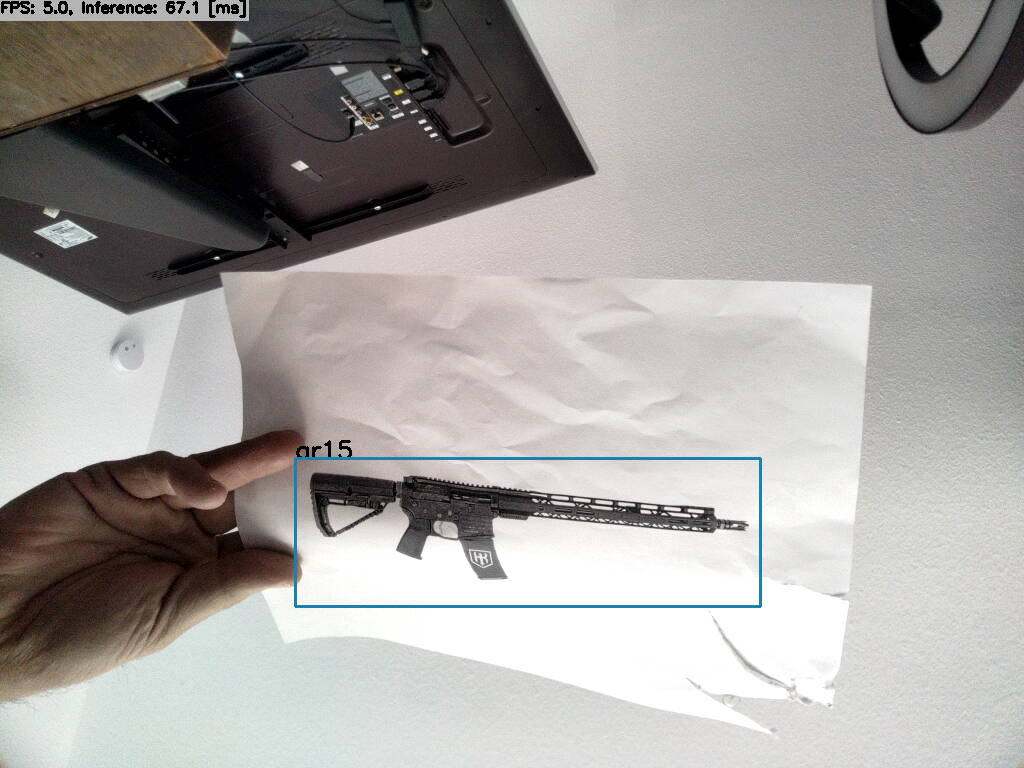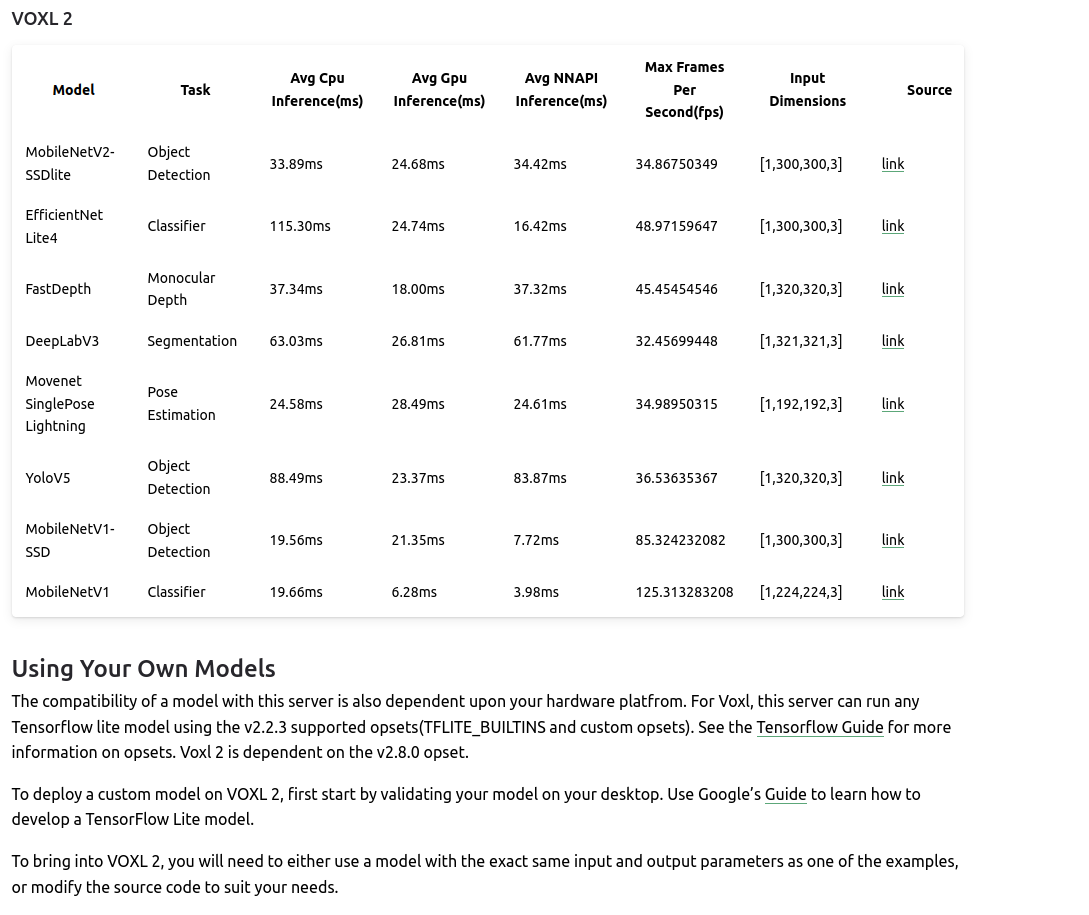Can anyone recommend a Tflite Colab Notebook for VOXL2 Training
-
@thomas
https://gitlab.com/voxl-public/voxl-sdk/services/voxl-tflite-server/-/merge_requests/22
Here's the merge request with the fix, this will be published both in tonight's nightly and new SDK releases.
Thomas
-
@thomas you rock! awesome! thanks for troubleshooting.
-
@thomas thanks thomas. will download tomorrow and test either in evening or next day. Really appreciate your help with this.
Great job! Sabri -
Yeah of course, glad I could be of assistance! Be sure to let me know if you need any more help with this.
Two things I was thinking about on my drive home that you should know - First, when you're on that page I linked above for the software nightlies make sure you sort the files by date descending so that you get the most recent one. I always make the mistake of getting the wrong one. Secondly, when you flash that nightly SDK it will overwrite anything not in the
/data/directory and so you will need to put your model file and labels txt back into/usr/bin/dnn/.Thomas
-
@thomas Morning Thomas, just getting back to this. I couldnt find any SDK that had a 2024 stamp. Was this uploaded somewhere else?
Sabri -
Here's the one from last night:
https://console.cloud.google.com/storage/browser/_details/platform-nightlies/voxl2/voxl2_SDK_nightly_20240117.tar.gz?pageState=("StorageObjectListTable":("s":[("i":"objectListDisplayFields%2FtimeLastModified","s":"1"),("i":"displayName","s":"0")%5D))&organizationId=517175400245&project=modalai-core-services
You just have to make sure when you're on this page that you sort date modified by descending.
Thanks,
Thomas -
@thomas
installed voxl2_SDK_nightly_20240117.tar.gz
per https://docs.modalai.com/flash-system-image/still not getting any detection even with your default yolov5. ive tried with hires large color, small color and grey.

-
-
@thomas @sansoy
So I was able to get our YOLO model running immediately, am about to try yours next. All I did was:
- Flash the nightly SDK from last night using the steps you linked above
- Edited
/etc/modalai/voxl-tflite-server.confso that the model was/usr/bin/dnn/yolov5_float16_quant.tfliteand the input pipe was/run/mpa/hires_small_color.
You should definitely try to reproduce this result as if you can't it might indicate a deeper problem.
Then to use your custom model:
adb shelland thencd /usr/bin/dnnand thencp yolov5_labels.txt yolov5_labels.txt.bak && cp yolov5_float16_quant.tflite yolov5_float16_quant.tflite.bakto back up the existing model and label files.vi yolov5_labels.txtand change to only havear15as a class- From outside ADB,
adb push yolo5_fp16_quant.tflite /usr/bin/dnn/yolov5_float16_quant.tflite voxl-tflite-server

Thomas
thomas.patton@modalai.com -
@thomas WORKED! i did most of what you stated except for renaming my file to your filename. !

in a future release would be able to use the original filename vs renaming it to something that is hardcoded?
-
Glad you got it working!
It's important to note that
voxl-tflite-serverisn't intended to be a high-grade tool for running any ML model with great configurations and optimizations; it's just an example of how you can use the VOXL ecosystem to run models. As much as I would enjoy building such a tool and implementing your request (and the others I get), there just isn't enough of a business demand for it right now.That being said, the code is open source and right here is the line that does the string comparison. If you want to put out a merge request to add a new field for
model_typeto the/etc/modalai/voxl-tflite-server.confJSON and have it select an inference method based on that, you can tag me and I'll review it.Thanks,
Thomas Patton
thomas.patton@modalai.com -
@thomas said in Can anyone recommend a Tflite Colab Notebook for VOXL2 Training:
It's important to note that voxl-tflite-server isn't intended to be a high-grade tool for running any ML model with great configurations and optimizations; it's just an example of how you can use the VOXL ecosystem to run models. As much as I would enjoy building such a tool and implementing your request (and the others I get), there just isn't enough of a business demand for it right now.
Thanks for the info. how can i get access to the box coordinates in the image?
-
Check out https://gitlab.com/voxl-public/voxl-sdk/services/voxl-tflite-server/-/blob/master/include/ai_detection.h?ref_type=heads , this defines the detection output. This is streamed out to a pipe in
/run/mpaThomas
-
@thomas @sansoy Has anyone tried integrating a yolov8n model, I have a tflite fp16 quantized model but this line in the modal ai documentation says that any other model architecture apart from the ones mentioned here cannot be used,
 file:///home/swarm_researchers/Pictures/Screenshots/Screenshot%20from%202024-01-27%2021-34-41.png
file:///home/swarm_researchers/Pictures/Screenshots/Screenshot%20from%202024-01-27%2021-34-41.png -
@sansoy has been able to get custom models working, but you'll have to follow the steps we took in the posts above. Let me know how I can best help!
Thomas
-
@thomas Also the model which @sansoy used was yolov5n, and I checked most of the code of inference helper it was related to yolov5, is the tflite server compatible to any yolo model?
Actually in a separate post I asked about object tracking with yolo models, from the article I read here and referring to the individual tracker documentations, somehow I need to have access to the tflite model to run these trackers, is there a way to integrate the trackers into the voxl-tflite-server, as the documentation says it provides hardware acceleration.
https://www.datature.io/blog/implementing-object-tracking-for-computer-vision
-
@thomas Edit about upgrading the sdk to nightly build: I tried it on my starling v2 drone, but somehow the nighly build is unable to write px4 parameters and the upgrade ends up failing (firmware issue link I reverted the sdk back to sdk 1.0 and the drone fortunately works again, but how would I avoid the number of classes bug which you highlighted above. I also have modified yolo to detect just one class.
-
The goal of
voxl-tflite-serveris to provide an example of how ML models can be used in the VOXL ecosystem, not as an in-depth, well-tested framework. Your custom YOLO model might work, it might not. At lot of the logic in the server for math regarding the raw tensor data that the model produces has been written specifically for the models we put onboard. A good example of this is how the module postprocesses our YoloV5 network here; if your output tensor is the same format then you'll probably get good results out. If not, then you won't.So I would follow the steps we took above to get a custom YOLO model working. If it doesn't work, you'll need to write your own C++ module that subscribes to an input camera pipe using
libmodal-pipe, creates aTFLite::Interpreterthat works with your model, and then parses the output tensor from your YOLO model. I'm happy to help you out with whatever you need here.No idea what's going on with the PX4 params, that's outside of my domain. However if you're having problems with TFLite server regardless, it might just be best to code up your own approach as outlined above.
Keep me in the loop, happy to help you out however you need!
Thomas Patton
-
@thomas I used my custom dataset to retrain yolo v5 model and I get similar performance on my desktop. About the sdk is it possible to get the changes you did to the tflite server in a build closer to sdk 1.1.2 for the starling v2. I was able to upgrade and fly the drone till that version of the sdk 1.1.2 that means that whatever nightly releases happened after that might have same px4 related bugs.
About the Multi object tracking, if I have to rewrite the same thing which deepsort or any other algorithm did that would entirely have to be in C++? Also if I want to run any ML/AI model without the tflite server, lets say in a python script (running on docker container onboard voxl2) it would not get any of the gpu hardware acceleration? I ask this questions because writing a sdk level software is much difficult. Instead if we had drivers like in our desktop pcs (CUDA like drivers) which when invoked in a python script could readily make the acceleration available. It would make ML deployment much easier.
-
M Moderator referenced this topic on
-
Check your other post for details on getting the nightly builds.
VOXL can run any language you install on it, Python or C++ or whatever else. However if you want to read camera data in in real-time, our supported solution is through
libmodal-pipewhich is written in C++. As for the hardware acceleration, it may be possible to use it in Python but we only have it documented for C++ via thennapi_delegateclass inTFLitewhich you can see here. There might be other methods for acceleration but this is all we've used and tested so far.That is to say that we don't currently have hardware accelerators built into a general purpose library like CUDA. I would love to write a library like that but we simply don't have the business demand for it right now.
Hope this helps,
Thomas Patton